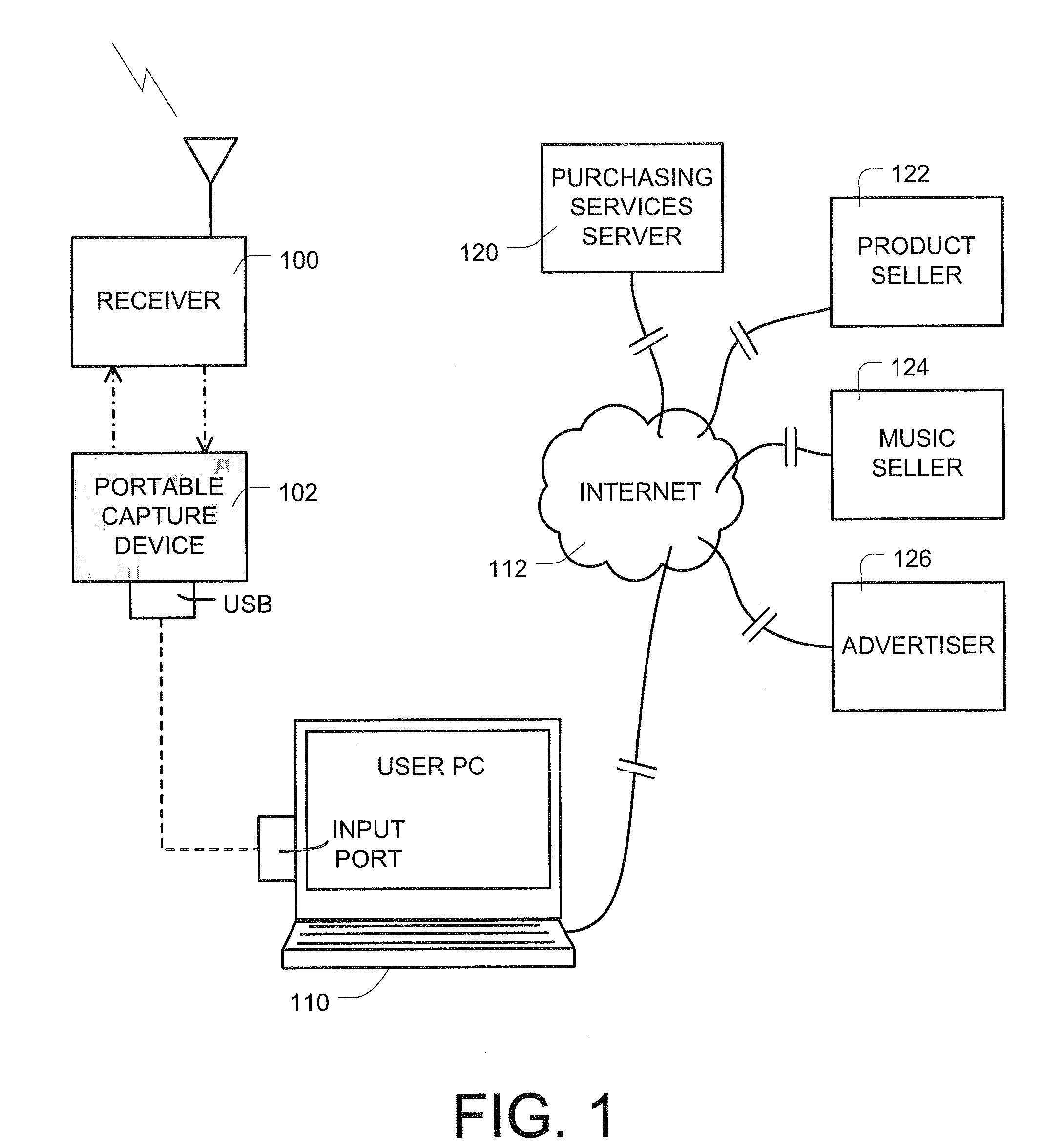Interactive radio advertising and social networking
a radio advertising and social networking technology, applied in the field of user interaction with radio broadcasting, can solve the problems of inconvenient or impossible actions, limitations on cell phone use, and inability to become interactiv
- Summary
- Abstract
- Description
- Claims
- Application Information
AI Technical Summary
Benefits of technology
Problems solved by technology
Method used
Image
Examples
Embodiment Construction
[0023]A. System Overview
[0024]When a customer hears an advertisement, a radio program or a music track on a radio, or would like to donate for a charitable, civic or educational cause or a radio station, utilizing one aspect of the present disclosure, they simply press the pertinent button on their portable capture device (the “PCD”) or, in accordance with another aspect of the present disclosure, they can invoke a “quick purchase” application on their cell phone and press the pertinent button. The term “cell phone” or simply “phone” is used herein broadly to include, without limitation, all portable wireless communication devices, such as cell phones, iPhone, Blackberry, etc. that can transfer voice and or data over a wireless network.
[0025]In one embodiment, there are a minimum of three buttons on a portable capture device; one for music, one for ads, and one for transcripts and donations as described in detail later in this document. These features are described by way of illustr...
PUM
 Login to View More
Login to View More Abstract
Description
Claims
Application Information
 Login to View More
Login to View More - R&D
- Intellectual Property
- Life Sciences
- Materials
- Tech Scout
- Unparalleled Data Quality
- Higher Quality Content
- 60% Fewer Hallucinations
Browse by: Latest US Patents, China's latest patents, Technical Efficacy Thesaurus, Application Domain, Technology Topic, Popular Technical Reports.
© 2025 PatSnap. All rights reserved.Legal|Privacy policy|Modern Slavery Act Transparency Statement|Sitemap|About US| Contact US: help@patsnap.com



